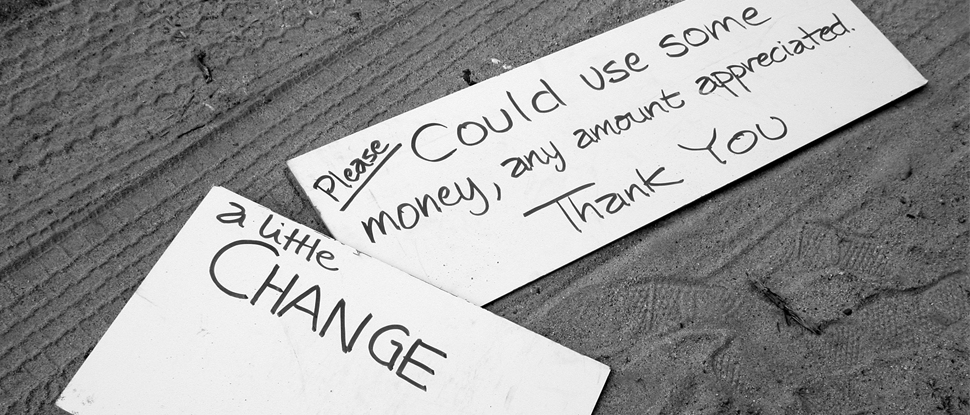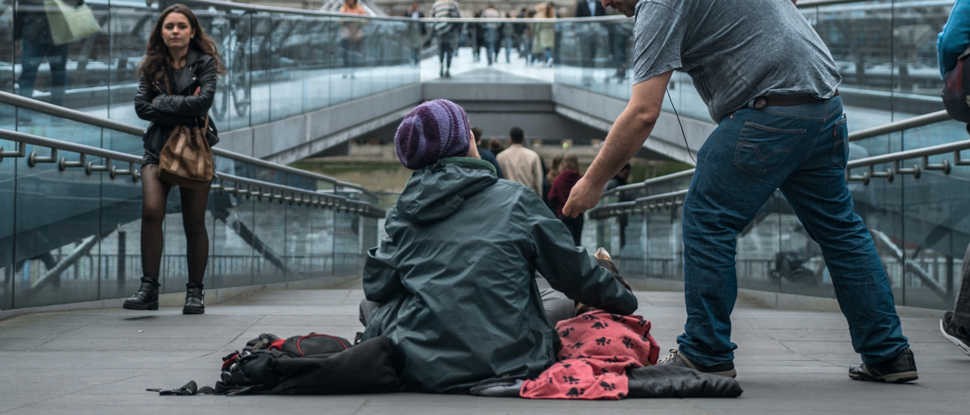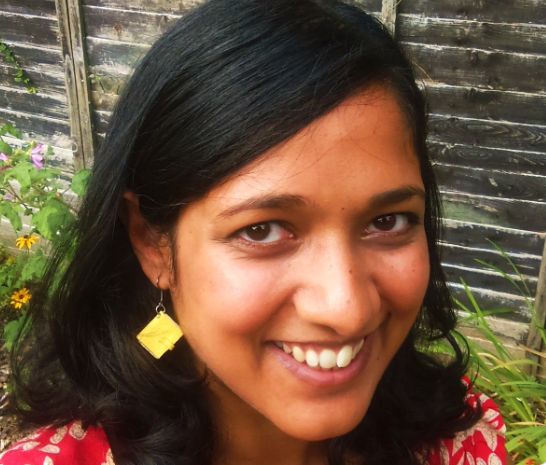- Home |
- Search Results |
- Why homelessness is the tragedy we can’t avoid, and why we shouldn’t want to
Why homelessness is the tragedy we can’t avoid, and why we shouldn’t want to
Last year 320,000 people were recorded as homeless in Britain by Shelter, with 36 new people becoming homeless every day. In her book How to Find Home, Mahsuda Snaith writes about a homeless protagonist and the trials she faces. Here, she shares why she wanted to address this topic in her novel.

One of the reasons I chose to write about homelessness for my second novel How to Find Home was because of the discomfort I felt when walking past homeless people. And not only discomfort, but panic, guilt, embarrassment and the fear that the person in question would see these emotions written on my face and judge me. So I looked away. It seemed pretending they weren’t there was better than acknowledging someone shivering in their sleeping bag and doing nothing.
But the writer side of me wouldn’t let the matter lie. This side, as many writers will tell you, has an annoying habit of always asking why? Why were these people on the street in the first place? Who, if anyone, was helping them? And why did it make me so uncomfortable to see them there?
Then, one day, a character turned up in one of my stories. A young woman in a denim jacket and red canvass shoes. A woman with an easy smile and eyes that watched intently. A woman who was homeless.
I don’t think people believe me when I say that characters take over my writing but this certainly happened when Molly appeared. It soon became clear that her story was far bigger than the one she was already in and that, if I was going to do justice to it and to her, I needed to do the research. I watched documentaries and read piles of books but my real lessons about homelessness came when I began volunteering and talking to people who had experienced it.

The main thing I learned was this; homelessness can happen to anyone. I encountered people who had come from abusive childhoods but also people who had come from loving homes.
The main thing I learned was this; homelessness can happen to anyone. I encountered people who had come from abusive childhoods but also people who had come from loving homes, those who had seen their fortunes change after a tragic incident; a death, a reversal of fortunes, a mental breakdown or the end of a relationship. One person I spoke to had witnessed their mother being killed at a bus stop and had subsequently boomeranged from care homes to prison to mental health wards and hostels. Another had lost her life savings when her children had emptied her accounts. Some had been teachers, others business owners and one was still working in an office job while sleeping in his car at night.
I also learned about an even darker side of homelessness; the random attacks, drug addiction, the vulnerability of women being targeted by unscrupulous men. There were many who avoided the streets by sofa-surfing or staying in temporary accommodation. But I knew Molly was like the others; sleeping under bridges and in abandoned warehouses, trying her best to hide from the authorities and services. These rough sleepers would tell me how they felt invisible when people didn’t acknowledge them, as if they couldn’t be seen and therefore didn’t matter.
I knew that, despite this hardship, Molly would be a character filled with hope. In my experience, particularly having grown up on a council estate, laughter and optimism are essential to the survival of people living in poverty. As one of my childhood friends often tells me, ‘If I didn’t laugh, I’d sob.’

After five years of research and redrafting, I now realise that the reason I felt so uncomfortable about homelessness was because I didn’t know enough about it. When I walk by homeless people on the street I no longer avert my gaze. Instead I look at them and smile. Though I know this gesture won’t solve their problems, I hope that, at the very least, it lets them know that they can be seen and that they do matter. I also hope that, whether homeless or not, readers of How to Find Home will be left feeling this too.